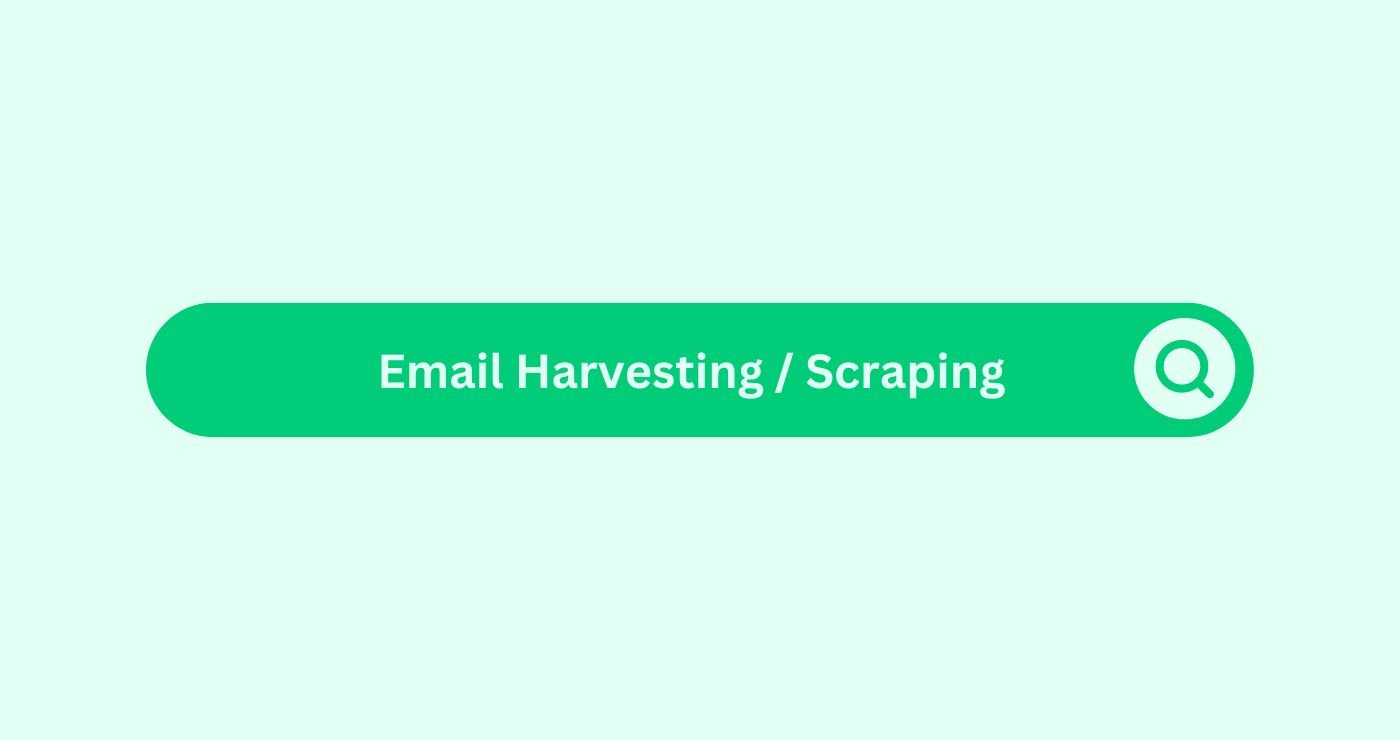Definition
Email harvesting, or scraping, is the process of extracting email addresses from various online sources, such as websites, social mediaWhat is Social Media? Social media refers to online platform... platforms, and online directories. This technique is often used for creating contact lists for email marketing campaigns. However, it’s important to note that email harvesting can be illegal and unethical if done without permission.
How You Can Use
Example: A company looking to expand its email marketingDefinition
E-mail marketing uses targeted messages t... list uses a web scraping tool to collect email addresses from publicly available online directories. They use these addresses to send out promotional emailsDefinition Promotional emails are a cornerstone of email mar... about their products. However, to comply with legal and ethical standards, the company ensures they only collect emails from sources where individuals have explicitly consented to have their information shared.
Key Takeaways
- Ensure compliance with legal regulations like GDPR and the CAN-SPAMDefinition The CAN-SPAM Act, short for "Controlling the Assa... Act.
- Use email harvesting tools responsibly and ethically.
- Validate and clean harvested emails to ensure quality and reduce bounce rates.
- Obtain explicit consent from individuals before sending marketing emails.
- Consider using alternative methods for building email lists, such as opt-in forms and leadDefinition A Lead in the context of SEO refers to a potentia... magnets.
FAQs
What is Email Harvesting / Scraping?
Email Harvesting / Scraping is the process of extracting email addresses from various online sources.
How does Email Harvesting / Scraping work?
It works by using automated tools or scripts to collect email addresses from websites, social mediaWhat is Social Media? Social media refers to online platform..., and online directories.
Why is Email Harvesting / Scraping controversial?
It's controversial because it can violate privacy laws and regulations if done without explicit consent from the email address owners.
How can I ethically use Email Harvesting / Scraping?
Use it ethically by obtaining explicit consent, complying with legal regulations, and ensuring the data collected is from legitimate sources.
What are the legal implications of Email Harvesting / Scraping?
Legal implications can include penalties for violating privacy laws such as GDPR and the CAN-SPAMDefinition The CAN-SPAM Act, short for "Controlling the Assa... Act if emails are collected and used without consent.
How do I measure the success of Email Harvesting / Scraping?
Measure success by tracking metricsWhat are Metrics in the context of SEO? Metrics in SEO refer... like the number of valid email addresses collected, email open rates, and response rates from the harvested list.
Can I use Email Harvesting / Scraping for any email campaign?
No, it's best to use email harvesting for campaigns where you have explicit consent from the recipients or from sources that allow data collection.
What are the risks of using Email Harvesting / Scraping?
Risks include legal penalties, damage to your brand's reputation, and high bounce rates from invalid or unverified emails.
How often should I update my email list harvested through scraping?
Regularly update and clean your email listDefinition By forwarding the email, you ensure that your tea... to ensure it remains accurate and to remove invalid addresses.
What should I avoid when using Email Harvesting / Scraping?
Avoid collecting emails without consent, using unverified email addresses, and neglecting legal compliance.




